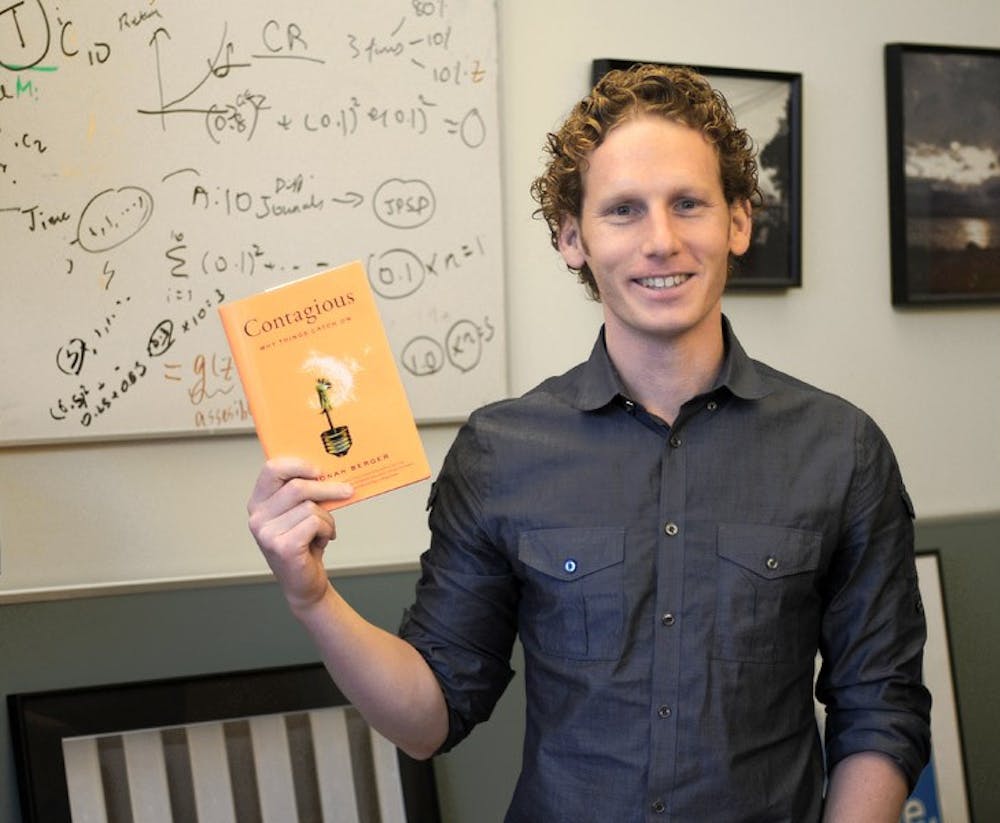
For people wondering why “Gangnam Style,” greek yoghurt and Rebecca Black’s songs became popular, Jonah Berger might have the answer.
Berger, an assistant professor of marketing at The Wharton School, is going to launch his first book, titled “Contagious: Why Things Catch On,” on March 5. The book, which has recently been reviewed by The New York Times, seeks to answer the question of why some things and ideas are spread and shared extensively through word-of-mouth, setting out a six-step framework illustrating key concepts that drive what people talk about through stories.
“The goal is to bring these ideas to life and help communicate them in a way that people can use,” Berger said.
Citing Rebecca Black’s song “Friday” as an example, Berger illustrates the influence of triggers in the sharing of information.
“It’s not that the song is better on Friday — it’s equally bad every day of the week, but Fridays are a little environmental reminder, what I call a trigger … to encourage people to talk about it and share it,” he said.
In the book, he also investigates what makes a piece of content widely shared through analysis of six months worth of New York Times articles.
Berger began working on the ideas in the book in broad form more than four years ago. He teaches a course at Penn called “Contagious: How Products, Behaviors, and Ideas Catch On,” and polished the ideas in the course to form the book’s content.
Applying his marketing knowledge to the promotion of the book, he helped design an orange cover for it “so it’s easier to see when people are reading it.” The brightness of the cover makes the private activity of an individual reading the book into a public experience, one of the concepts illustrated in his book.
Berger also reached out to a select group of students who showed a knack for marketing in his class and invited them to help market the book through projects. One such project is a Crafting Contagious workbook, which is a downloadable document designed for readers to apply ideas from the book in a practical context.
“The goal here is to demystify the idea of going viral as random, magic or luck — it’s not,” College and Wharton senior Alexander Chahin, who worked with Berger, said in an email. “It’s a science.”
Berger wrote the book aiming not only to help companies and entrepreneurs “from big business like Fortune 500 companies to the corner coffee shop” leverage these ideas to make their own products popular, but also to diffuse ideas from his course to a broader audience who is interested in the topic.
Wharton senior Chloe Heckman, who also worked with Berger, thinks the book “is great.” Although she feels that it does not compare to the depth of the class, she feels “it is a fun and insightful read for just about any audience.”
The book is available at the Penn Bookstore, and Berger will also be giving a talk as part of the Authors@Wharton speaker series. To reach a more global audience, the book will also be available in 15 languages from Japanese to Bulgarian.
“Things going viral is not just a U.S. phenomenon,” Berger said. “In every country people are talking and sharing about content, and it’s interesting to understand why.”
The Daily Pennsylvanian is an independent, student-run newspaper. Please consider making a donation to support the coverage that shapes the University. Your generosity ensures a future of strong journalism at Penn.
DonatePlease note All comments are eligible for publication in The Daily Pennsylvanian.








